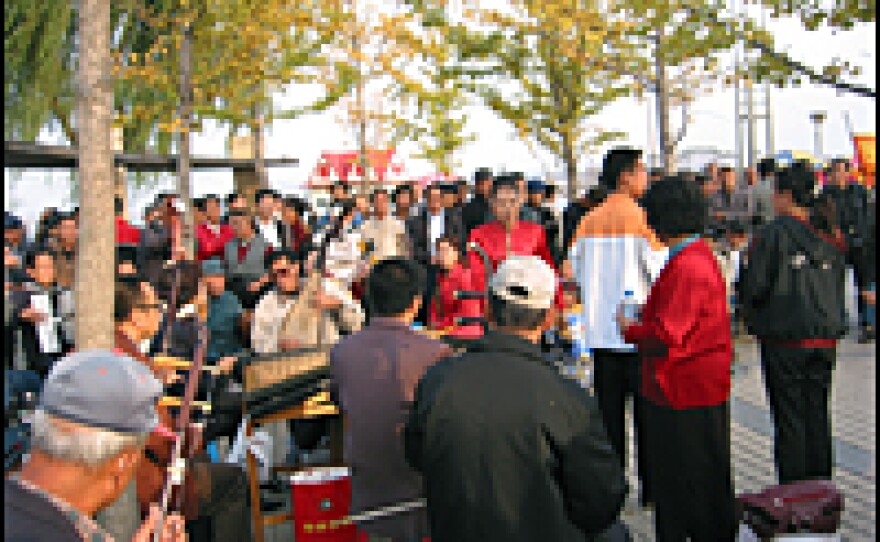
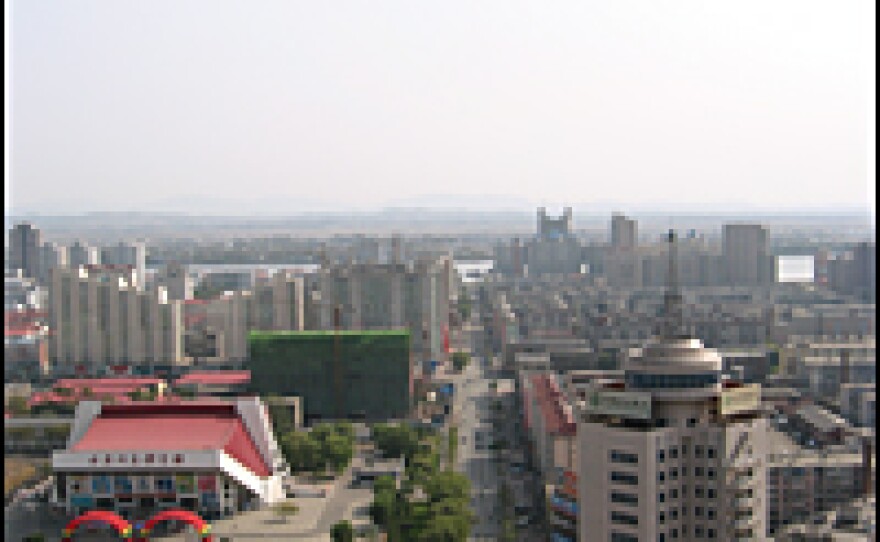
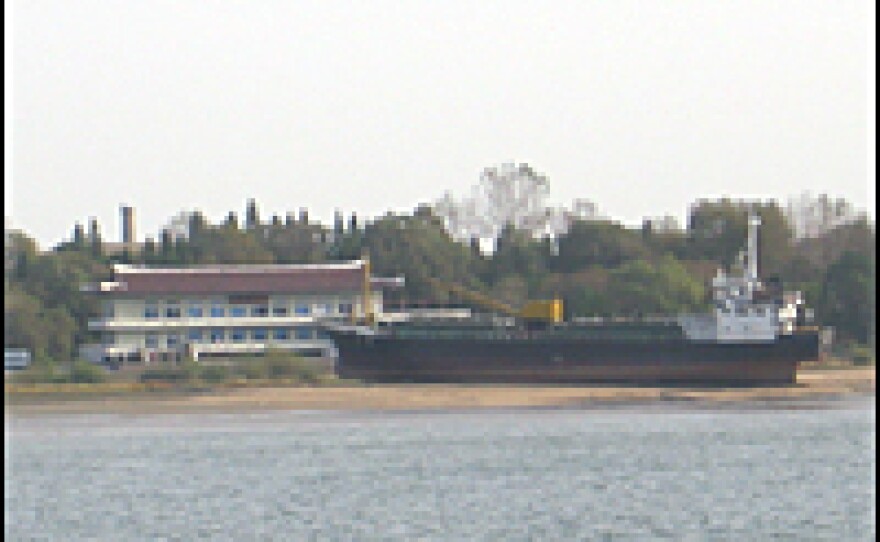
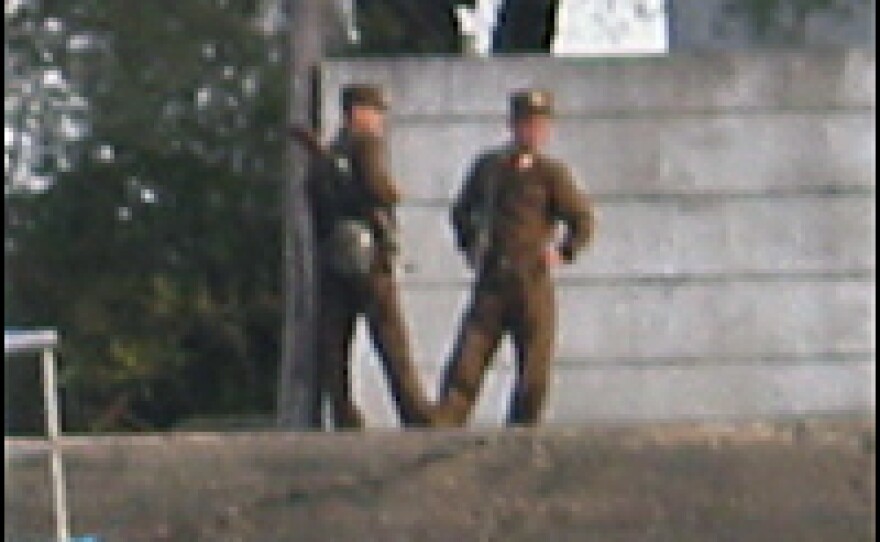
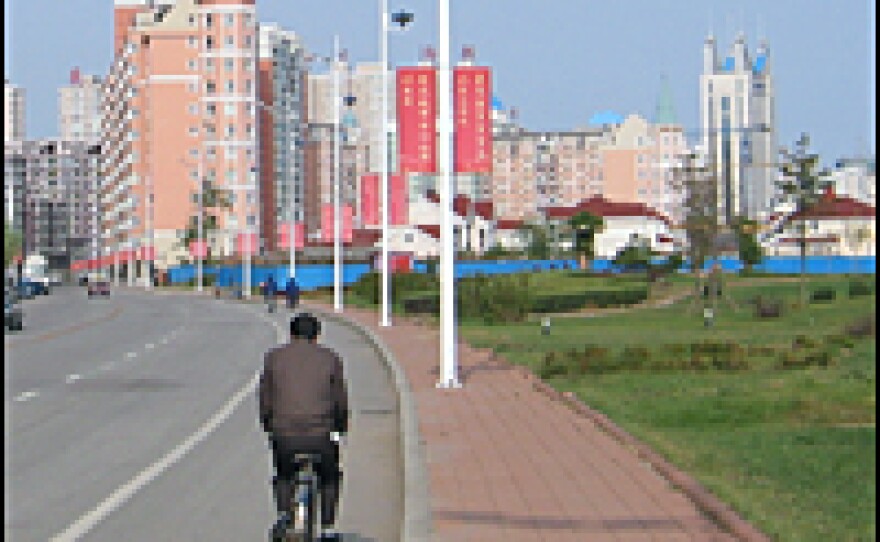
China provides most of North Korea's fuel and food aid. Much of it goes over a bridge on the Yalu River, which marks part of the border between the two nations. On the west side of the Yalu is the Chinese city of Dandong. On the east side is the North Korean city of Sinuiju.
The contrast between the two is like night and day.
At high tide on the Yalu, you can almost get within arm's reach of North Korea. Chinese tour boats take you past Sinuiju's decaying factories whose smokestacks, locals say, haven't let out a puff of smoke in years.
A hotel along the river has a rusting ship beached right in front of it, and no guests in sight. With binoculars, you can make out the sullen and bored expressions of the People's Army's soldiers standing guard, or the shipbuilders doing their wash in the river.
North Korea banned Chinese tour groups from the country Aug. 15. One young tour guide, who would only give her surname, Liu, says she found it a restrictive and depressing experience to take Chinese tour groups to Pyongyang.
"They watch your every move and every word," Liu says. "Every tour group gets two Korean guides. One explains about North Korea. The other is a national security agent."
Liu says the contrast between the two sides of the river makes her proud to be a Chinese citizen. She sniffs at the North Koreans' attitude.
They think that Chinese are degenerate revisionists," she explains. "They hold themselves up as the last bastion of pure socialism."
On a sunny afternoon on the Chinese side of the river, retired factory worker Liu Weibao takes in a music performance in a riverside park. He points to luxury condominiums and hotels springing up nearby.
"This side of the Yalu is beautiful," he said. "At night, there are lights everywhere. Over there in North Korea, it's pitch black at night. On that side, you don't even see any street lights."
Then, Liu points to trucks rolling over the bridge from North Korea. He says they come carrying raw materials and go back loaded with consumer goods. Last year, more than half of the $840 million in trade between the two countries went through Dandong, according to official statistics.
A Korean War museum up the street pays tribute to the millions of Chinese troops who fought in Korea half a century ago. Experts say that China wants to maintain the fiction of communist solidarity, so it can't admit that it's already exerting pressure on North Korea to drop its nuclear programs.
But Shi Yinhong, an international-relations expert at People's University in Beijing, says that if North Korea keeps testing nuclear weapons, the veil of friendship could soon be shattered.
"Chinese are asking, just who would a hostile North Korea armed with nuclear weapons threaten? In past we thought it would be someone else: America, Japan or South Korea," he says. Now more and more people are imagining that in future, it could very possibly threaten China most of all."
Back on the riverfront, a computer consultant, who asked to be identified by his English name, Ben, gazes across the border. He says he was alarmed by North Korea's recent nuclear test.
"If America has 300 atomic bombs, it's not frightening. If Japan has 30 atomic bombs and China has 30, it's not frightening. But if North Korea has three nuclear weapons -- that's scary," Ben says.
Ben is too young to have memories of the time when China and North Korea weren't so different. But even as a young boy, he says, he remembers feeling that China had hope. As hard as he looks, that's something he can't make out across the river.
Copyright 2022 NPR. To see more, visit https://www.npr.org. 9(MDAzMjM2NDYzMDEyMzc1Njk5NjAxNzY3OQ001))







